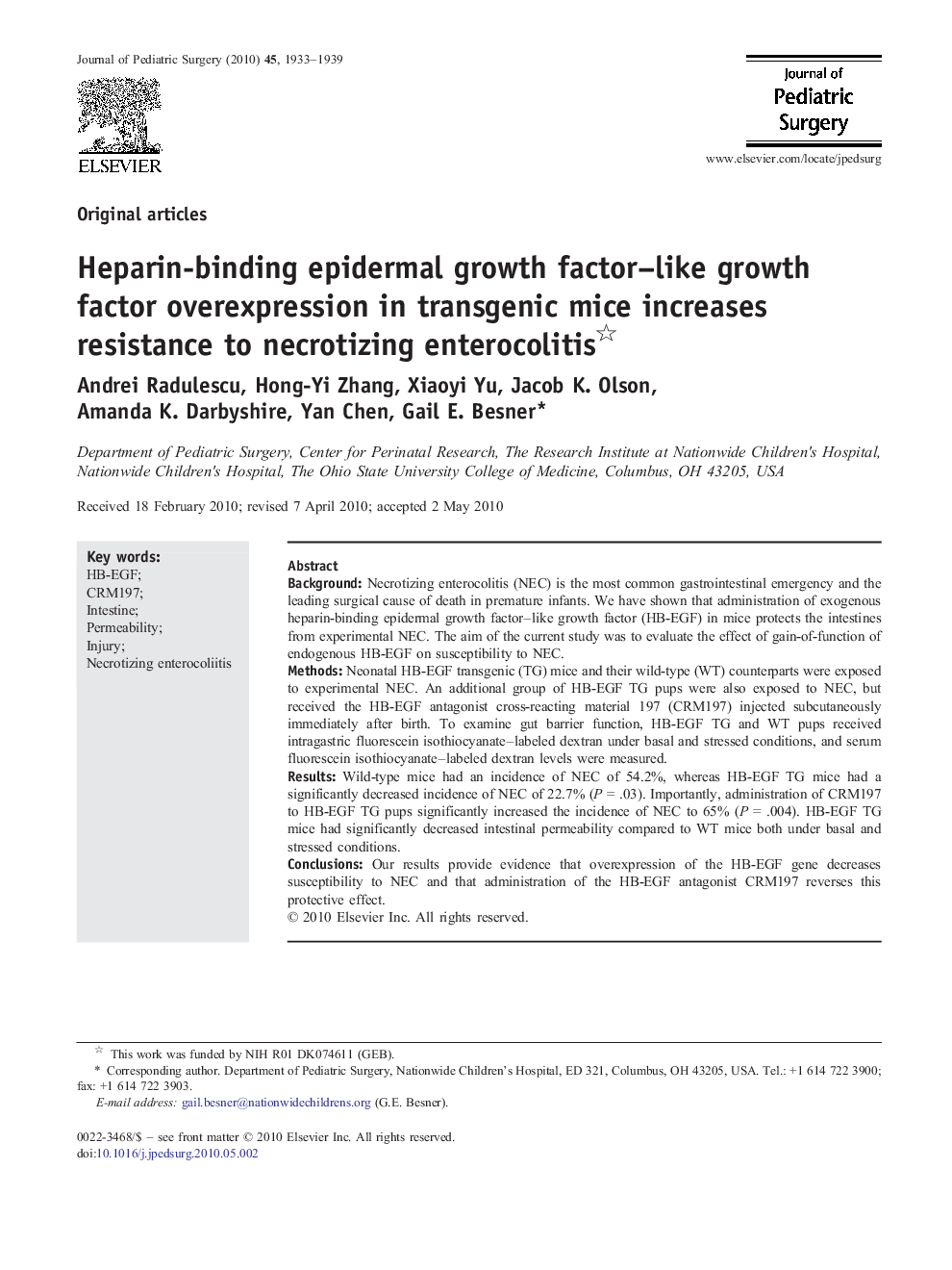| Article ID | Journal | Published Year | Pages | File Type |
|---|---|---|---|---|
| 6218260 | Journal of Pediatric Surgery | 2010 | 7 Pages |
BackgroundNecrotizing enterocolitis (NEC) is the most common gastrointestinal emergency and the leading surgical cause of death in premature infants. We have shown that administration of exogenous heparin-binding epidermal growth factor-like growth factor (HB-EGF) in mice protects the intestines from experimental NEC. The aim of the current study was to evaluate the effect of gain-of-function of endogenous HB-EGF on susceptibility to NEC.MethodsNeonatal HB-EGF transgenic (TG) mice and their wild-type (WT) counterparts were exposed to experimental NEC. An additional group of HB-EGF TG pups were also exposed to NEC, but received the HB-EGF antagonist cross-reacting material 197 (CRM197) injected subcutaneously immediately after birth. To examine gut barrier function, HB-EGF TG and WT pups received intragastric fluorescein isothiocyanate-labeled dextran under basal and stressed conditions, and serum fluorescein isothiocyanate-labeled dextran levels were measured.ResultsWild-type mice had an incidence of NEC of 54.2%, whereas HB-EGF TG mice had a significantly decreased incidence of NEC of 22.7% (P = .03). Importantly, administration of CRM197 to HB-EGF TG pups significantly increased the incidence of NEC to 65% (P = .004). HB-EGF TG mice had significantly decreased intestinal permeability compared to WT mice both under basal and stressed conditions.ConclusionsOur results provide evidence that overexpression of the HB-EGF gene decreases susceptibility to NEC and that administration of the HB-EGF antagonist CRM197 reverses this protective effect.
